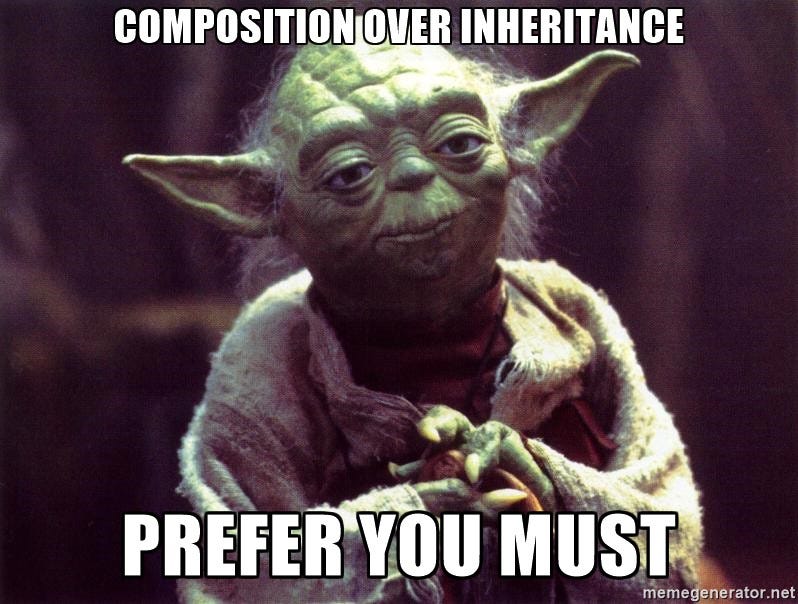[ad_1]
Getting conversant in OOPs idea in Go and understanding how Go achieves these ideas in its personal distinctive method
You’ll be able to see above that there’s an alluring pink heavenly physique that appears and describes much more than this image on this darkness of the universe with thousands and thousands of stars and planets away from it. Effectively, we will additionally relate the identical to our subject right now just like the universe is an enormous class of objects means the solar, planets, moons, asteroids, and so on, are all objects of that class. In truth, the moonlight additionally performs a job in inheritance the moonlight which is definitely depending on the solar’s mild. Therefore, we will relate OOP’s ideas to a number of issues. So, let’s get a bit extra acquainted in respect with Go.
OOPs stands for Object-Oriented Programming Programs and are the kind of programming by which we have to outline the info construction for the info kind and the sure operation to modularize our program construction. For extra, you possibly can check with this hyperlink: https://en.wikipedia.org/wiki/Object-oriented_programming
We want OOPs when we have to modularize our complicated code construction, make it extra dependable, and maintainable, present a superb framework for code libraries, and so on.
Let’s contemplate Go to be a light-weight object-oriented programming language due to Go’s simplicity. Go use the identical alike ideas of OOPs however not multi function go. To start with, Go isn’t an OOP language and it’s not designed to be like that as a result of the ideas of OOPs are designed to be consists of sophistication and object construction to keep up the code infrastructure through implementing tremendous class, summary class, constructors, objects, derived class, and destructors, and so on. Effectively, there’s a lot to that. Speaking about Go, it simply implements its OOPs construction in its personal method. Effectively, this debate can go lengthy, however right here’s an official FAQ reply out there on this hyperlink: https://go.dev/doc/faq#Is_Go_an_object-oriented_language. Go test it out.
Listed below are some ideas of OOPs beneath with respect to Go, so let’s attempt to get conversant in them.
Encapsulation
In easier phrases encapsulation means if we now have single entity knowledge that’s written inside any class or package deal it’s hidden for an additional class or for the skin world whereas abstraction means to cover pointless data
In Go, we use this precept at package deal degree as a result of it doesn’t present entry modifiers like personal, public, and guarded. It additionally performs a job in variables, structs, strategies, and features, so should you say, for instance, declare a operate with the capital letter that operate could possibly be simply invoked within the present package deal in addition to in one other package deal therefore it makes it publicly out there in code construction whereas should you declare a operate with a small letter it will solely be out there to that individual package deal, therefore making it extra personal and a bit safe.
Therefore, from the above instance, you possibly can see how features can develop into personal and public in keeping with case sensitivity.
When it comes to OOPs, encapsulation and abstraction are extra than simply knowledge hiding and entry specification it carry extra options to the lessons and interfaces, however within the case of Go, it simply makes use of the lighter model of each ideas.
Inheritance

Briefly, inheritance means to create new lessons(subclasses or derived lessons) from current base(father or mother) lessons and obtain code reusability. In Go, there isn’t any such factor as inheritance however there’s composition to attain construction inheritance through struct-embedding means to embed fields of 1 struct to a different struct. You will get to know extra about struct-embedding by this hyperlink: https://gobyexample.com/struct-embedding
Go solely helps composition if we are saying it by way of inheritance. Whereas inheritance is extra than simply composition as people who find themselves having expertise in OOPs languages like JAVA, C++, and so on.
Polymorphism
Polymorphism is the oop idea by which an object is able to molding into a number of types identical to three spiderman’s in our case from a distinct dimension with totally different types however the entity is similar.
In Go, we will obtain polymorphism through implementing interfaces in Go. Interfaces work as a set of strategies. Let’s get extra conversant in an instance.
Therefore, within the above instance, as you possibly can see the Developer struct implements the Duties interface by defining strategies like BugFix and Enchancment. I’ve written this instance as a result of we builders are far more pleasant with these phrases in our days whereas getting assigned totally different variations of duties like bugfix, enhancements, hotfix, and so on.
Enums
Enum is a particular knowledge kind with enumerated knowledge which consists of a set of parts. Principally the enumerated knowledge is of fixed kind in lots of languages.
Within the case of Go, we will create enums and outline fixed variables accordingly by declaring iota to the primary variable in a sequence of it. The iota key phrase represents the integer fixed from zero.
const (
Java = iota
Go
Javascript
Rust
)Output: 0 1 2 3
There are some extra examples with which we will get to know extra about how iota works otherwise with a number of methods of initialization.
const (
Java = iota
Go
_
Rust
)Output: 0 1 3
Above, as you possibly can see the _ skips the worth within the enum counter
const (
Java = iota
Go
)const (
Rust = iota
Javascript
)Output1: 0 1
Output2: 0 1
Above, as you possibly can see should you outline the totally different enumerated typed constants they may have their very own increment values ranging from zero.
So, that’s it about OOPs in Go. In an upcoming article, I’ll write that how we will obtain useful programming in Go, and in addition I might be arising with system design ideas.
Keep tuned.
[ad_2]
Source_link
